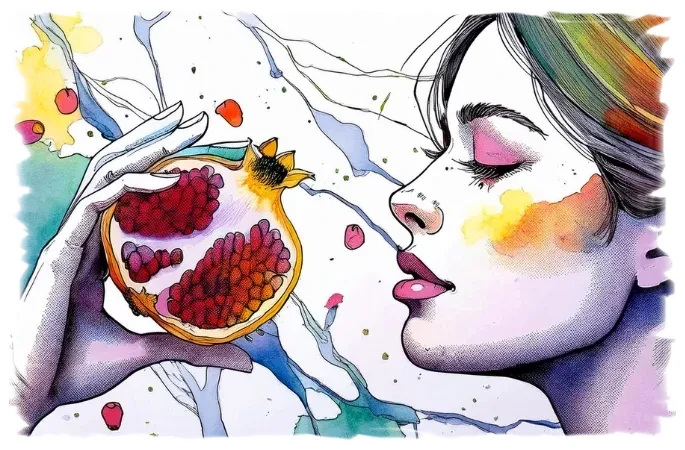Each time I eat a pomegranate, I taste the myth of Persephone.
The red seeds, like drops of blood, tell her story – a girl stolen by
Hades, the king of the underworld. He kept her in the shadows,
bound to him by fate, but poets now call it ‘her choice,’ ‘her fate,’
as if she longed for the darkness she was dragged into.
Just a few seeds, she ate. Only a mouthful to ease her hunger.
But in Hades’ world, a simple taste comes with a price, as myths
say. She didn’t know these seeds were forbidden, didn’t know that
this taste would tether her to him, to the underworld, to his
shadowy realm forever.
Yet poets ask, did she eat them because she wanted to stay? Did
she choose the underworld, choose him? They spin tales of
longing and secret desires, as if her hunger was more than a
need for food- as if it was a desire for captivity.
What I wonder, though, is different. I would like to ponder – how,
in a world bound by patriarchy, even a goddess’s hunger can be
twisted. How her moment of weakness, of survival, becomes a
tale of willing submission. How her captivity becomes ‘her choice’
in the eyes of men.
Who can call this her fate? A girl, abducted, kept from the sun,
punished for a taste – her story becomes an echo of our own. How
many times, across the ages, have we been told that our
endurance is a choice, that our struggle is our destiny?
Persephone’s story, hers and yet not hers, tastes bitter like
pomegranate on my tongue.



